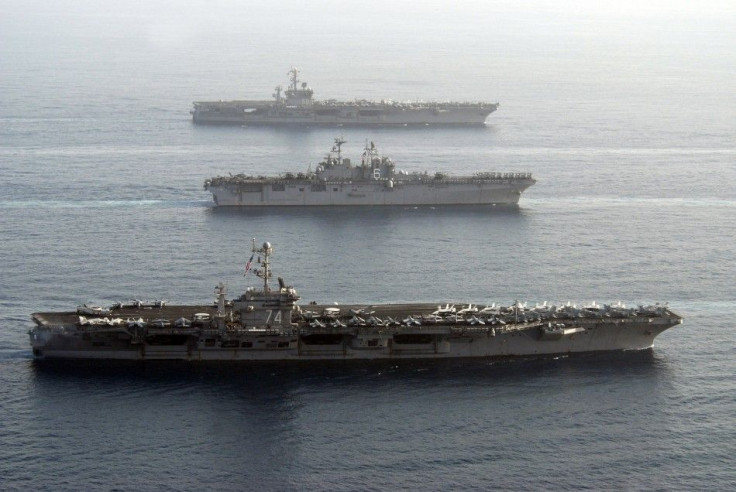Australia To Deploy Navy Ship To Strait of Hormuz

Australia has said yes to an invite from the United States to join a coalition of countries that will deploy naval ships to the Strait of Hormuz. The coalition will protect oil tankers and cargo ships from any Iranian attack.
Australian Prime Minister Scott Morrison has emphasized that his country’s involvement will be "modest, meaningful and time limited."
On Wednesday morning the Prime Minister said, “This [Iran’s] destabilizing behavior is a threat to Australia's interests in the region. The government has decided that it is in Australia's national interest to work with our international partners to contribute. Our contribution will be limited in scope and it will be time bound."
The Strait of Hormuz serves as the gateway to the Persian Gulf and any threat to the movement of the oil tankers will affect global oil prices. About one third of the world’s oil passes through the strait every year. Australia is particularly vulnerable as it must import over 90 percent of its fuel needs, most of it coming from the Middle East. It does get refined products from refineries in South Korea, China and Singapore.
Middle East tensions, always high, were elevated again with U.S. President Donald Trump re-imposing sanctions that had been suspended by the 2015 Iran Nuclear Deal. Trump pulled out of the agreement in 2018.
On July 4, an Iranian tanker was seized in Gibraltar, a British territory. British forces said the ship was heading to Syria in violation of European Union sanctions. Iran’s response was to use its Revolutionary Guard to seize the British oil tanker Stena Impero plus an Iraqi tanker it claimed was "smuggling fuel for some Arab countries."
Responding to the question as to if the Australians would use force, the chief of the Australian Defense Force, General Angus Campbell, said, "Our people are very well-trained, and they'll be operating under international law. Their presence will be to support the security of the shipping.”
Australia will send a P-8A Poseidon maritime surveillance aircraft for one month in December followed by a six-month deployment of a Royal Australian Navy frigate for the first half of 2020.
The reason for the coalition, aside from protecting the oil tankers, may be that the U.S. does not want to be burdened with the task of being an escort in and out of the Persian Gulf. The U.S. has a staggering amount of firepower in the area including the USS Abraham Lincoln, a Nimitz Class nuclear aircraft carrier.
Trump has approved the U.S. force act as sentinels at the entrance to the gulf but wants other countries who are more dependent on Middle Eastern oil to pick up the bulk of the costs.
© Copyright IBTimes 2024. All rights reserved.





















